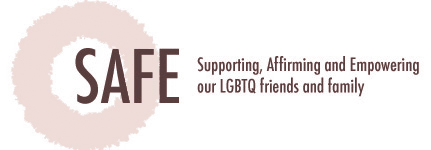|
| What is homophobia? |
Frequently asked questions about homophobia
What is homophobia?
Sometimes people who object to gay people are called homophobic. Homophobia is a fear of and/or hostility towards gay people or homosexuality. Homophobia is often expressed visibly, audibly and sometimes violently.
Why do some people behave badly towards gays?
Although people often grow up exposed to more or less the same beliefs about sexuality, they can hold quite different attitudes in their adult lives. While some people believe homosexuality is a valid lifestyle, others violently object. Some people believe that homosexuality is unnatural, others see it as a sin and have said that for gay men 'AIDS is a plague sent from God'.
At the beginning of the AIDS epidemic, gay men were frequently singled out for abuse as they were deemed to be responsible for the cause and spread of the virus. Sensational reporting in the press became progressively anti-gay and did little to help the situation.
What causes people to be prejudiced against gay men and lesbians?
There are probably no simple causes of homophobia. While there is probably no single thing which causes a person to be homophobic, research has shown that prejudice towards gay people and homosexuality can be influenced by the person:
• reporting no homosexual experiences or feelings;
• being negative about types of sexual behaviour and relationships which are neither procreative nor take place within marriage;
• having and adhering to strong religious beliefs which disapprove of sex and/or homosexuality;
• having little or no social contact with lesbian and gay people.
How do people express their homophobia?
Amongst young people, boys and girls who do not act in line with their gender stereotype - for example boys being sporty, strong decision-makers and girls being more emotional, expressive nurturers- may be subjected to severe bullying.
This may include accusations of being of the opposite sex, or of being gay. Boys who show their feelings or who are too intimate with other boys are often called 'girls', 'fags', or 'poofs'. Girls who are deemed to be too boyish or who hold feminist views run the risk of being called 'dykes' or 'lesbians'.
Boys may be more prejudiced than girls towards gay people. This is because the boundaries on boys gender roles are much more rigid than they are for girls. As a result boys have a limited number of ways acceptable to their peer group to express their emotions. This often means that any expression between boys may be seen by their peers as latent homosexual interest.
Between girls, in contrast, close friendships which involve embracing, touching and sharing thoughts and feelings are more legitimate and are less likely to be seen by their peers as an indication of homosexuality.
'Gay' is often used by young people as a standard insult. This derogatory use of words associated with homosexuality is one way in which young people learn it is highly undesirable to be gay.
What are some of the effects of homophobic teasing and bullying?
There are a number of effects:
• It silences young people who are experiencing gay feelings;
• In order to protect themselves, young gays and lesbians often pretend to be heterosexual and sometimes join in homophobic taunts themselves;
• It reinforces the isolation of young people who are being bullied or abused because they are perceived to be gay. There is no-one to talk to and people are very hesitant to defend them;
• It keeps gays separate from each other because of the implications of being seen together by their peers;
• It starts a common set of feelings regarding rejection which effects individuals for many years to come, even in their adult lives;
Many gay and lesbian adults say that they began to identify themselves as 'different' in their secondary school years. In this period, the absence of support, understanding or information was sometimes a source of distress in itself and often magnified their anxieties.
Source: Talking Homosexuality in the Secondary School, by Avert.orgLabels: Homophobia |
|
|
|
|
|
|
